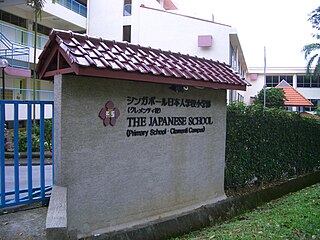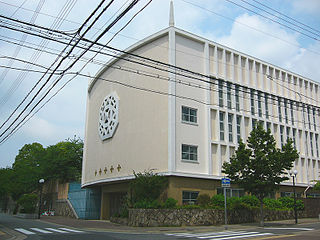Related Research Articles
The American Sociological Association (ASA) is a non-profit organization dedicated to advancing the discipline and profession of sociology. Founded in December 1905 as the American Sociological Society at Johns Hopkins University by a group of fifty people, the first president of the association would be Lester Frank Ward. Today, most of its members work in academia, while around 20 percent of them work in government, business, or non-profit organizations.
Munesuke Mita was a Japanese sociologist who wrote about modern society. Mita has studied about modern society at University of Tokyo and influenced many young sociologists such as Masachi Ohsawa, Shunya Yoshimi, Atsushi Miura and Shinji Miyadai.
The Japan Society for the Promotion of Science is an Independent Administrative Institution in Japan, established for the purpose of contributing to the advancement of science in all fields of the natural and social sciences and the humanities.
Akio Mori is a Japanese physiologist, sports scientist and writer. He is also the founder and the former head of the Japanese learned society Japanese Society of Health and Behavior Sciences.
The Japanese Association of Management Accounting was founded in 1991 and has devoted to promote studies and practices of management accounting.
The World Data System (WDS) was created by the International Council for Science (ICSU), the predecessor to the International Science Council (ISC), at their 29th General Assembly in October 2008. The mission of the World Data System is to enhance the capabilities, impact and sustainability of member data repositories and data services by creating trusted communities of scientific data repositories, strengthening the scientific enterprise throughout the entire lifecycle of all data related components - creating first-class data that feeds first-class research output, and advocating for accessible data and transparent and reproducible science.

CiNii is a bibliographic database service for material in Japanese academic libraries, especially focusing on Japanese works and English works published in Japan. An early trial version of the database was a component of its predecessor called GeNii, available online at least since June 2002. A complete version of CiNii has been available since April 2005. The service searches from within the databases maintained by the NII itself, as well as the databases provided by the Japan Science and Technology Agency (J-STAGE), the National Diet Library of Japan, institutional repositories, and other organizations.

The Japanese School Singapore is a Japanese international school in Singapore, covering elementary and junior high school levels. There are two separate elementary schools of the JSS in Clementi and Changi, while junior high school division is located in West Coast. As of 2013 this Japanese international school is the largest overseas Japanese school in the world.

The Japanese Cancer Association (JCA) is the oldest professional association related to cancer research in Japan. Based in Shinjuku, Tokyo, it focuses on all aspects of cancer research, including basic, clinical and translational research into the etiology, prevention, diagnosis, and treatment of cancer. Founded in 1941, the JCA has more than 16,000 members.

The Yokohama Yamate Chinese School is a Chinese-style primary and junior high school in Naka-ku, Yokohama, Japan. Serving levels kindergarten through ninth grade, it is one of two Chinese schools in Japan oriented towards mainland China, and one of five Chinese schools total. As of 2008 Pan Minsheng is the principal.

Kobe Chinese School is a Chinese international school in Chuo-ku, Kobe, Japan. It is one of two mainland China-oriented schools in Japan, the other being Yokohama Yamate Chinese School. It provides elementary and junior high school education in grades 1-9 and offers first choice in admission to children of alumni. The second choice is priority to Chinese people. The school established a policy of trying to minimize enrollment of Japanese students in 2000. In 2008 about 40% of the students were Japanese nationals who are ethnic Chinese.

Shojiro Nishio is a Japanese information scientist and technology scholar and the 18th president of Osaka University. Having co-authored or co-edited more than 55 books and more than 650 refereed journal or conference papers as well as serving on editorial boards of major information sciences journals, Nishio is considered one of the most prominent and influential researchers on database systems and networks.
The Japan Statistical Society is a learned society in Japan. The Society's objective is "To promote research and education in the area of statistics, and to contribute to the progress of statistical sciences". JSS was founded in 1931. Its membership consists of researchers, teachers, and professional statisticians in many different fields.

John C. Maher is an Irish-British linguist, academic and author, professor of linguistics at International Christian University, Tokyo, Japan.

Sociology is the methodological and scientific study of human society. It studies the social interactions between a person and society as well as the social patterns between societies, groups, nations, institutions, etc. Sociologists research the relationships between social structures and human lives. They also aim to solve the corresponding social issues revealed from the researches.
The Japanese Association of Medical Sciences is a suborganization of the Japan Medical Association (日本医師会) devoted to the development and promotion of science and research in medicine. The Japanese Association of Medical Sciences was founded independently of the Japan Medical Association in 1902 as a collaboration between 16 medical societies in Japan. Since their founding, they have held a general assembly called the Japan Medical Congress every four years except in 1947 when it was postponed for a year due to the Second World War. In 1948, they held their twelfth assembly at which point they merged with the Japan Medical Association, which has remained their parent organization since. Rather than individuals, the Japanese Association of Medical Sciences has member societies. As of 2019, they have 132 member societies.
Development Growth & Differentiation is a peer-reviewed scientific journal published by Wiley on behalf of the Japanese Society of Developmental Biologists. It was established in 1950 as Embryologia, obtaining its current title in 1969. The editor-in-chief is Masanori Taira. According to the Journal Citation Reports, the journal has a 2021 impact factor of 3.063.
The Mammal Society of Japan is a Japanese society established in 1987 to promote the study of mammals.
Secular Shrine Theory or Jinja hishūkyōron (神社非宗教論) was a religious policy and political theory that arose in Japan during the 19th and early 20th centuries due to the separation of church and state of the Meiji Government. It was the idea that Shinto Shrines were secular in their nature rather than religious, and that Shinto was not a religion, but rather a secular set of Japanese national traditions. This was linked to State Shinto and the idea that the state controlling and enforcing Shinto was not a violation of freedom of religion. It was subject to immense debate over this time and ultimately declined and disappeared during the Shōwa era.
References
- 1 2 3 "Introduction to JSS". jss-sociology.org. Retrieved 2024-11-14.
- ↑ JAPAN, SCIENCE COUNCIL OF. "日本学術会議ホームページ - 内閣府". 日本学術会議ホームページ (in Japanese). Retrieved 2024-11-14.
- ↑ "学会名鑑". gakkai.scj.go.jp. Retrieved 2024-11-14.
- ↑ Saito, Keisuke (2013). "Academic Journals and Young Researchers:: A Comparative Study of The Annual Review of Sociology and the Japanese Sociological Review". The Annual Review of Sociology. 2013 (26): 87–98. doi: 10.5690/kantoh.2013.87 . ISSN 0919-4363.
- ↑ "日本社会学会奨励賞規程 | 日本社会学会". 日本社会学会 | Just another WordPress site (in Japanese). 2019-03-14. Retrieved 2024-11-14.
- ↑ "過去の受賞者について | 日本社会学会". 日本社会学会 | Just another WordPress site (in Japanese). 2010-02-15. Retrieved 2024-11-14.